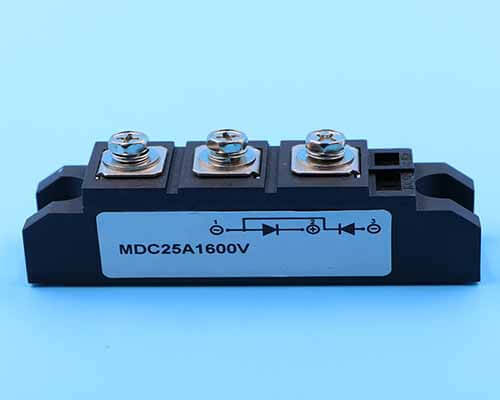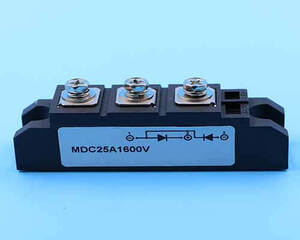Blog Information
- Posted By : Julia Cao
- Posted On : Feb 26, 2024
- Views : 131
- Category : General
- Description : In the realm of electronic devices and power systems, rectifier modules emerge as vital components, playing a pivotal role in converting alternating current (AC) into direct current (DC).
Overview
These modules are crucial for powering numerous applications, ranging from everyday consumer electronics to complex industrial systems.
This article explores the significance of rectifier modules, their functions, and their widespread applications in the world of electronics.Understanding Rectifier Modules
A rectifier module is an electronic device designed to rectify or convert, AC to DC. It employs semiconductor devices such as diodes and thyristors to allow current flow in one direction, resulting in a unidirectional flow of electrical energy.
This conversion process is essential because many electronic devices, including computers, televisions, and industrial machinery, require a stable and controlled source of DC power for optimal performance.
Key Functions
AC to DC Conversion: The primary function of a rectifier module is to convert AC power from the electrical grid or other sources into DC power. This is achieved through the rectification process, which eliminates the negative alternations of the AC waveform, producing a pulsating DC output.
Voltage Regulation: Rectifier modules often incorporate voltage regulation circuits to ensure a stable and controlled DC output. This is crucial for providing a reliable power supply to electronic devices, preventing potential damage from voltage fluctuations.
Efficiency Enhancement: Modern rectifier modules are designed for high efficiency, minimizing energy loss during the conversion process. This efficiency is particularly important in applications where energy conservation and reduced heat generation are critical considerations.
Applications in Various Industries
Telecommunications: In the telecommunications industry, rectifier modules are commonly used to provide a stable DC power source for communication equipment, including cell towers and data centers. These modules contribute to the reliability and uninterrupted operation of communication networks.
Information Technology: Rectifier modules play a crucial role in powering data centers, servers, and other IT infrastructure. The stability and efficiency of these modules are essential for preventing data loss and ensuring the continuous operation of critical computing systems.
Industrial Automation: Industrial machinery and automation systems often rely on rectifier modules to convert AC power from the grid into the DC power required for precise control and operation. This is especially prevalent in manufacturing processes and robotics.
Renewable Energy Systems: Rectifier modules are integral components in renewable energy systems such as solar and wind power. They convert the variable AC output generated by these sources into a stable DC power supply that can be used or stored in batteries.
Advancements and Future Trends
The field of rectifier modules continues to evolve, driven by advancements in semiconductor technology and the growing demand for energy-efficient solutions.
Emerging trends include the development of compact and lightweight modules, as well as increased integration of smart control features for enhanced monitoring and efficiency optimization.Conclusion
Rectifier modules serve as the backbone of power systems, enabling the conversion of AC to DC power for a multitude of applications across industries.
From telecommunications and information technology to industrial automation and renewable energy, these modules are indispensable for ensuring the reliability, stability, and efficiency of electronic devices and systems.
As technology advances, rectifier modules will continue to play a crucial role in powering the ever-expanding landscape of modern electronics and sustainable energy solutions.
